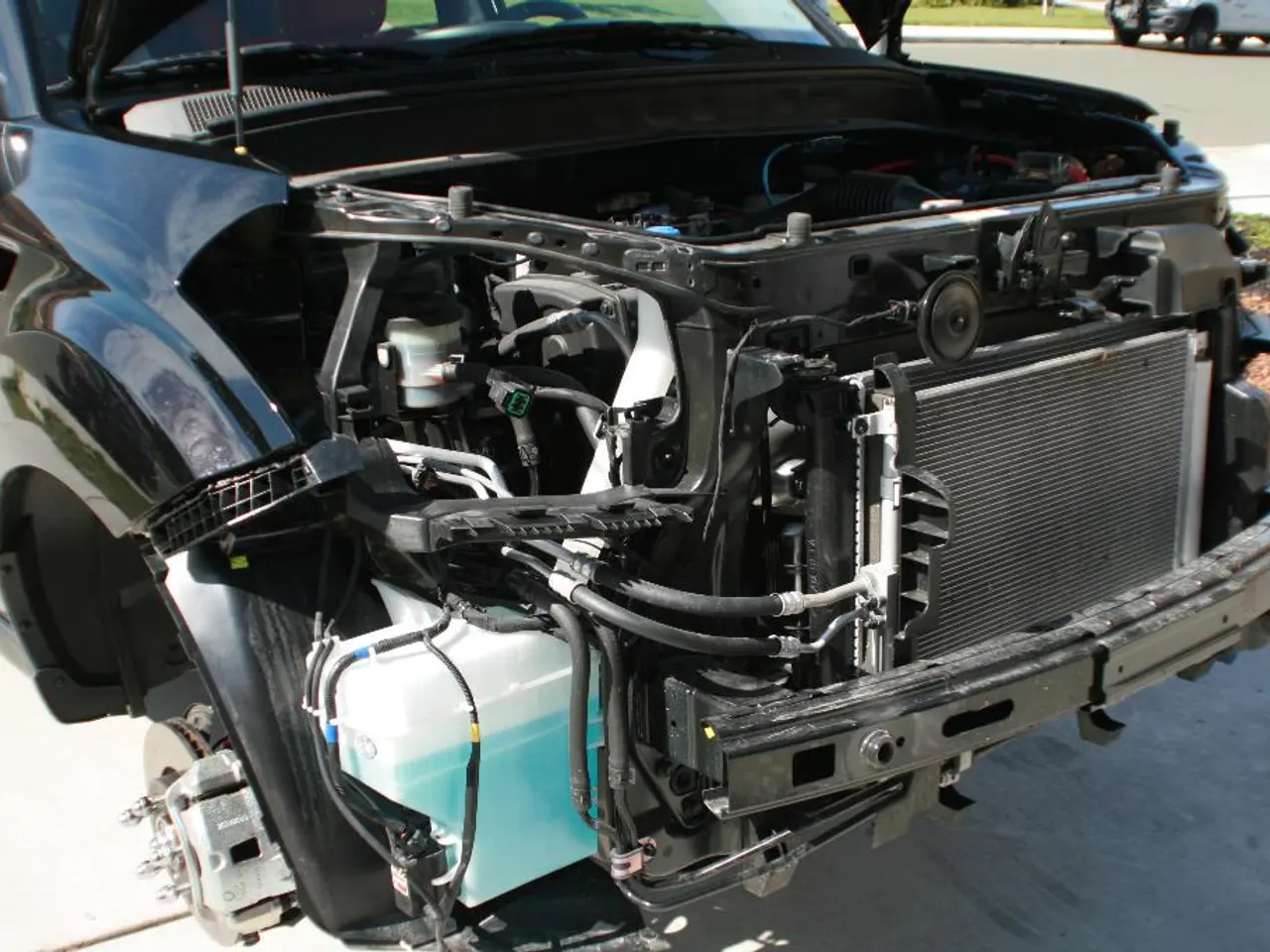Automobile conglomerates in Germany advocate for the government to repeal its prohibition on vehicles powered by combustion engines
The German Association of the Automotive Industry (VDA) has recently advocated for a reconsideration of the EU's 2035 ban on the sale of new cars powered by a combustion engine. The VDA, which represents not only Germany's major carmakers like VW, Mercedes, and BMW, but also numerous suppliers specialising in combustion engine technology, believes that ongoing advancements in sustainable fuels and industrial interests warrant a more nuanced policy [1][4].
The call for change comes as the VDA raises concerns about technological feasibility and transition readiness, arguing that a ban on new combustion engine vehicles from 2035 does not sufficiently take into account ongoing developments in alternative, cleaner fuels [1]. Economically, the VDA fears that a strict ban could threaten the competitiveness, jobs, and investment of Germany's auto sector, a significant player in the country's economy [4].
The VDA's draft paper proposes softening interim fleet emission targets and allows the registration of certain long-range plug-in hybrids after 2035 [2]. However, environmental think tank Agora Verkehrswende warns that adopting the VDA's proposals could lead to a significant slowdown in the electrification process [3].
The ban on the sale of new combustion engine cars from 2035 onwards is EU law and cannot be reversed single-handedly by Germany. Nevertheless, other member state governments have also expressed a desire to lift the ban, with the European Parliament's centre-right European People's Party (EPP), to which Chancellor Friedrich Merz's conservatives belong, also pushing to reverse the ban [5].
The VDA argues that fleet limits should be adjusted to keep the development and production of combustion engines in Europe, where they are technological leaders [6]. However, critics argue that the VDA's proposals could endanger thousands of jobs in Europe and cement China's lead in electric vehicles [7].
The German government has announced a policy to stimulate the roll-out of electric cars by allowing tax write-offs for new company EVs of up to 75 percent of the purchasing price [8]. Meanwhile, the SPD has signalled they would resist the adoption of the VDA's position, with Tiemo Wölken, the party's environmental policy spokesperson in the EU Parliament, stating that the proposals would take away any planning and investment security for companies [9].
The debate arises amid EU efforts to reduce greenhouse gas emissions from transport, but the VDA argues for a more flexible and technology-neutral approach that balances climate goals with industrial realities [1][4]. The VDA's head, Hildegard Müller, states that additional emissions could be compensated for by "more ambitious targets for renewable fuels" [10].
However, Transport & Environment (T&E) warns that the VDA's plans could result in avoidable emissions of 500 to 1,400 million tonnes of CO2 emissions [11]. Kerstin Andreae, leader of energy industry lobby group BDEW, states that Germany's EV charging infrastructure is well-developed but primarily lacks vehicles to make use of it [12].
This debate highlights the complexities of balancing climate goals with industrial realities, as the EU navigates the transition towards a more sustainable transport sector.
Sports enthusiasts might find a break from their usual routines, as the VDA's call for a more nuanced policy on the EU's ban on new combustion engine cars may impact the production and development of high-performance vehicles that incorporate these engines.
The VDA's proposals for adjusting fleet emission targets could potentially influence the future of motorsports, as racing cars heavily rely on high-performance, efficiently engineered engines that may be affected by any changes in regulations.






